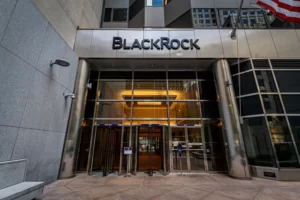The ongoing legal battle between Ripple and the U.S. Securities and Exchange Commission (SEC) has captivated the digital asset community, with the latest developments suggesting the SEC might reconsider its stance on an appeal. Bill Morgan, a prominent digital assets lawyer, recently speculated that the SEC could forgo an appeal in the Ripple case if “merely legal considerations are influencing the decision.” This insight has sparked intense debate among crypto enthusiasts and legal experts alike, especially in light of recent judicial rulings that seem to support Ripple’s position.
Morgan’s remarks came after a series of court decisions in related cases that could potentially weaken the SEC’s grounds for an appeal. In a post on X (formerly Twitter), Morgan pointed out that three judges—Judge Analisa Torres in the Ripple case, Judge Amy Jackson in the Binance case, and Judge William Orrick in the Kraken case—all made a crucial distinction between primary and secondary market transactions. This distinction has become a cornerstone of the legal reasoning in these cases, where cryptocurrencies like XRP are not deemed securities when sold to retail investors, a ruling that could limit the SEC’s regulatory reach.
In contrast, Judge Jed Rakoff’s ruling in the Terraform Labs case deviated from this trend by failing to differentiate between these types of transactions. His decision has drawn criticism from both the legal and crypto communities, who argue that it undermines the logic behind Judge Torres’ ruling in the Ripple case. Morgan suggested that the alignment of Judges Orrick and Jackson with Torres’ reasoning should alleviate concerns about the validity of her decision.
The legal community’s mixed reactions to these rulings highlight the complexity and evolving nature of cryptocurrency regulation. The SEC’s aggressive stance against Ripple, initiated with its 2020 lawsuit, was seen by some as a strategic move to hinder the company’s growth. As one X user put it, the lawsuit was a deliberate attempt to “slow Ripple down,” questioning the integrity of the SEC’s motivations. This sentiment is echoed by others who believe that the SEC’s actions may be driven more by political or non-legal considerations rather than by strict legal principles.
Another user on X raised a critical point that has gained traction: the apparent lack of legal errors in Judge Torres’ ruling. According to this perspective, if the SEC decides to appeal, it could indicate that the agency is motivated by factors beyond the legal merits of the case. This theory is gaining credibility, particularly as more judges seem to be siding with Ripple’s defense, thereby narrowing the SEC’s options.
Also Read: SEC vs. Ripple – Is The Case Really Over? 60% Chance SEC Won’t Appeal, Says Pro-XRP Lawyer
As the crypto world watches closely, the SEC’s next move will be pivotal. If the regulator chooses not to appeal, it could signal a significant shift in how U.S. authorities approach cryptocurrency regulation, potentially setting a precedent for future cases. However, if the SEC does pursue an appeal, it may face increasing scrutiny over its motives, especially if it appears that non-legal factors are influencing its decisions.
For now, the digital asset community remains on high alert, aware that the outcome of this legal battle could have far-reaching implications for the future of cryptocurrency in the United States.
Disclaimer: The information in this article is for general purposes only and does not constitute financial advice. The author’s views are personal and may not reflect the views of Chain Affairs. Before making any investment decisions, you should always conduct your own research. Chain Affairs is not responsible for any financial losses.



